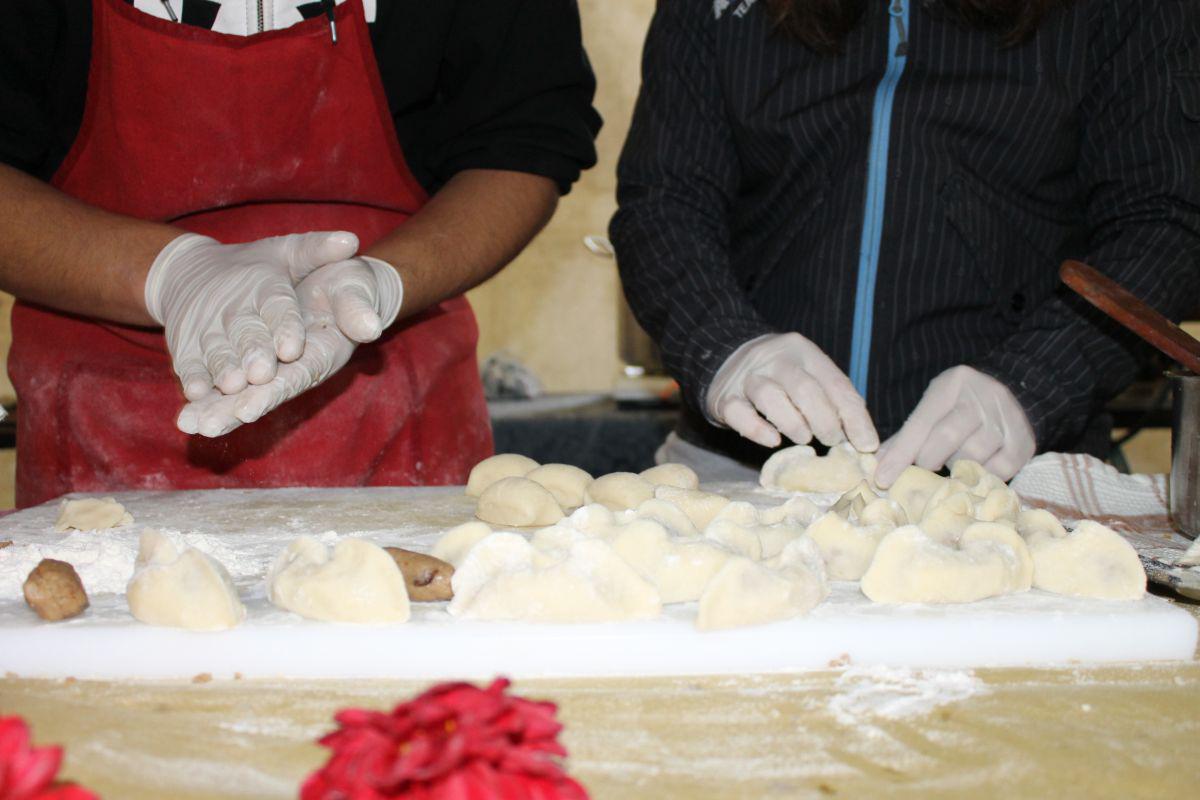Rateče, a small village in Slovenia’s Julian Alps, is best known as a base for ski jumping, skiing, and spectacular summer hikes. Recently, however, it has begun to attract attention of gourmets for its traditional local dish – the Rateče "krapi."
"Krapi" are dumplings vaguely resembling tortellini, but considerably larger. In the village of Rateče, they are typically made of potato flour and filled with cottage cheese and polenta -- the latter an example of influence from Italy, whose border passes just outside the village.
“Krapi” are known for their versatility. They can be served as either the main course or a side dish with various roasts or other local delicacies. When filled with pears, they can even be a dessert.
They were once commonly eaten in Rateče, but over the years, the tradition slowly died out. On the initiative of the local tourist board, however, several local restaurants have begun to reintroduce the dish to their menus, giving outsiders their first taste of the specialty.
Rateče’s discovery has prompted nearby towns to take a closer look at their culinary heritage – and their own varieties of “krapi.” Some have different kinds of filling, while others are made of buckwheat flour, a typically Slovenian ingredient. Recipes of the many varieties of “krapi” have even been brought together in a recently published booklet on the cuisine of northwestern Slovenia.
The rediscovery of “krapi” is part of a trend in broader culinary trend, in which towns across Slovenia are rediscovering old specialties that were once passed down from generation to generation but were lost with the advent of modernization. So far, the “back to the roots” approach appears to be a success; guests from Italy have ben know to drive hours just to sample Rateče “krapi” – high praise indeed from the country known for its pasta.
Meanwhile, towns and villages across Slovenia increasingly see “krapi” and similar dishes as a part of their identities – as something that makes them unique in an increasingly globalized world.
Jaka Bartolj



































































